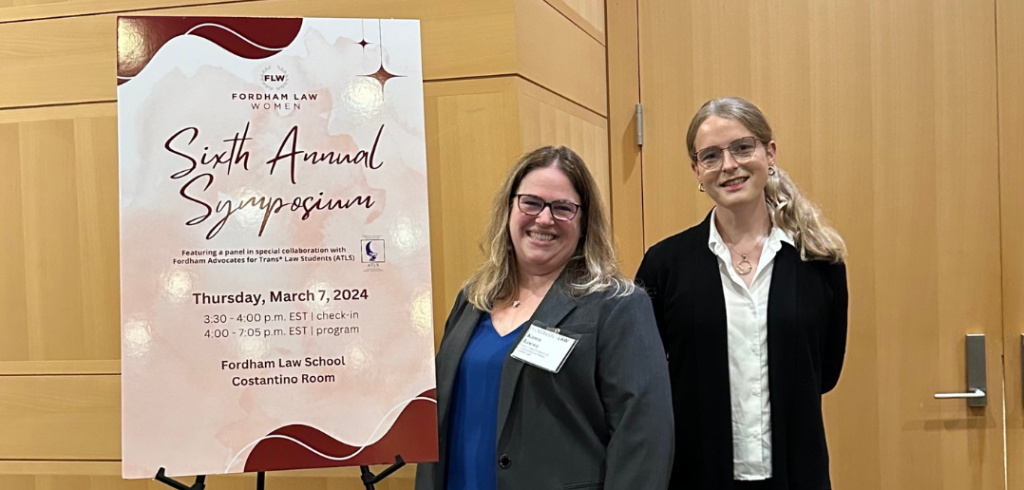 Reproductive and transgender rights in the United States are in jeopardy, say legal and policy experts. These and other issues were the focus of Fordham Law Women’s sixth annual symposium on women and the law held at Fordham Law School on Mar. 7 in special collaboration with the Advocates for Trans* Law Students.
Reproductive and transgender rights in the United States are in jeopardy, say legal and policy experts. These and other issues were the focus of Fordham Law Women’s sixth annual symposium on women and the law held at Fordham Law School on Mar. 7 in special collaboration with the Advocates for Trans* Law Students.
ACLU Communications Strategist Gillian Branstetter, a guest speaker on the panel “Reproductive and Trans* Justice” described the attacks on abortion rights and gender-affirming care as deeply intertwined.
Branstetter pointed to anti-abortion legal and political strategies that had been in place long before the Dobbs v. Jackson Women’s Health Organization Supreme Court ruling that overturned Roe v. Wade and severely impacted abortion access across the country.
These efforts included limiting healthcare access for minors, reducing access to crucial healthcare funding, and going directly after healthcare providers—the very same approaches now being used to curb gender-affirming care for trans people.
“We have seen that very same playbook be turned against transgender people’s healthcare to the extent that, in just the last two years, 23 states have banned gender-affirming care for minors,” said Branstetter. “Three years ago, one ban was unthinkable, the idea that nearly half the map is off bounds for this care practically overnight, politically speaking, is absolutely devastating for these families.”
Approaches to defending trans rights and abortion rights also share a common legal grounding, added Karen Loewy ’00, senior counsel and director of constitutional law practice at Lambda Legal.
“What are the constitutional principles that we’re talking about here? We’re talking about personal liberty and privacy and self-determination and expression and autonomy,” said Loewy. “These are the seeds where the abortion right—when it existed—that was what it was rooted in. And very similarly, [gender-affirming care bans] are really around people’s self-determination and the ability to make decisions about our own bodies.”
The event was a celebration of Women’s History Month at Fordham Law, and featured two other panels, including “Creating and Sustaining Diverse Workplaces After Students for Fair Admissions v. Harvard” and “Content Creation in the Legal Profession.”
During her speech welcoming attendees of the symposium, Fordham University President Tania Tetlow, the first woman to ever lead Fordham, spoke about the changing legal profession for women, noting recent data shows that while a slight majority of law students are women, they still lag behind men in key leadership roles at law firms.
“I hope for all of the women here—the students, the lawyers, or alumni—that you remember that the world needs our half of talent,” said Tetlow. “The world requires that of us. And the world really needs the ways that our experiences, our upbringing, the ways we’ve been trained, makes us better at our profession.”

